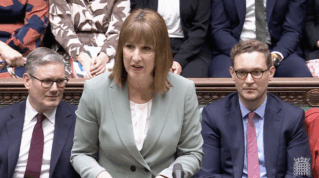New laws mandating minimum service levels for striking public sector organisations will cover further education, according to union bosses.
Business secretary Grant Shapps unveiled controversial plans in parliament on Tuesday which will include health, education, fire and rescue, transport, border security and nuclear decommissioning services.
The University and Colleges Union (UCU) said that the legislation as currently worded would cover every college and university regardless of whether they were in the public or private sector. The legislation will not affect the process of negotiating pay, the UCU said.
The bill, if passed into law, will mean minimum service levels must be provided by organisations in those sectors which are on strike to limit disruption for the public.
Guidance issued by the government on the bill did not specify what a minimum service level will be, but the Department for Education said that if regulations are taken forward in due course there will be consultation with unions, employers and other relevant parties.
Shapps told the Commons: “We hope to reach minimum service levels that mean we don’t have to use that power in the bill,” adding that it will “ensure vital public services will have to maintain a basic function”.
According to the DfE, the legislation will allow secretaries of state to bring forward regulations for their sectors, but the education secretary did not intend to do so in the short term because her preference was to proceed through agreement and guidance.
If the legislation proceeds and gains royal assent, striking workers could be sacked if regulations are not followed.
UCU general secretary Jo Grady said that the right to strike was a “fundamental freedom”, adding: “Rather than help address over a decade of falling wages, this government wants to instead make withdrawing your labour a sackable offence, and force people to work even if they have a right to refuse.”
About 4,000 UCU members across 29 different colleges took part in strike action during September and October last year over pay, the union said.
The Association of Colleges had proposed a 2.5 per cent pay increase, with chief executive David Hughes explaining that “the money is simply not there” for a bigger rise.
But union bosses called the offer “totally unacceptable”, demanding a 10 per cent rise with a minimum uplift of £2,000.

















Your thoughts